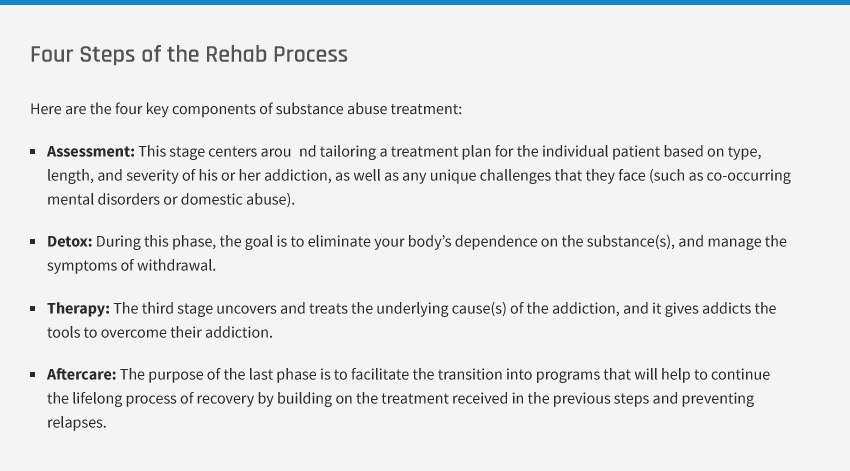The homeowners take an active role in this mode of treatment helping them to take duties and become favorable good example. Some Therapeutic Neighborhoods offer enhanced services for pregnant and post-partum women and their babies, which consist of coordination of prenatal/pediatric care. Social Design programs stress a sober living environment, peer therapy and case management.
Residents are expected to be included in the external neighborhood (through work, education, volunteer activities, etc.) Eligibility: For all three types of domestic services, individuals, eighteen years and older who remain in early recovery from alcohol and/or other drug addiction. Top priority is provided to people with specials needs, cultural and linguistic minorities, homeless people, injection drug users, persons involved with the criminal justice system and persons with or at threat for HIV/AIDS.
These programs provide a safe and structured restorative environment where ladies may get domestic substance addiction treatment services while still preserving custody and care of their kids. Reunification with children can occur while the mom is remaining at the program. Eligibility: Women with children who are in early recovery and require assistance in developing and preserving life abilities required to accomplish drug totally free living.
The Buzz on How To Find A Good Drug Rehab Facility
Programs supply shelter, coordination and case management of substance dependency treatment and other services for homeless families in order to support and sustain sobriety. Eligibility: The targeted population is recognized as homeless caretaking moms and dads or pregnant ladies, referred by the Department of Transitional Support, who have physical custody of a minimum of one child and who have a chronic compound dependency issue.

Youth Residential Programs provide short-term property rehabilitative services to youth between the ages of fourteen and eighteen years who need a supervised environment to reinforce their just recently gotten sobriety - what is drug rehab. Includes diagnostic, counseling, educational and pre-vocational, leisure, and HIV/AIDS associated services. Eligibility: High-risk youth between 14 and 18 years of age who are experiencing psychological/ behavioral, family, developmental and/or social dysfunction as an outcome of their alcohol and other drug usage.
Outpatient Counseling provides treatment for adults and adolescents, their households, and/or their better halves who are affected by the use of alcohol or other drugs. Customers are helped in getting and keeping abilities for a substance-free lifestyle. Solutions include evaluation and treatment planning, private, group, and family therapy. Eligibility: Anybody with Learn more issues about a compound dependency problem, or a household member/significant other who has concerns about somebody else's substance dependency issue.
See This Report about How Much Does Inpatient Drug Rehab Cost
Day Treatment and Intensive Outpatient Treatment are more extensive than Outpatient Treatment. Programs offer each client with numerous hours of counseling per day, up to four days a week including: private, group and household counseling, relapse prevention, communicable disease avoidance, case management, and support of making use of self assistance groups.
Acupuncture and recovery maintenance programs provide services for individuals with histories of compound dependency that require treatment for mild to moderate withdrawal signs. Solutions consist of limited medical screening and intake, motivational counseling/case management and acupuncture treatments. Eligibility: Open to clients with mild to moderate withdrawal signs. Service is not appropriate for customers in need of a medically kept an eye on detox.
These programs include specific, household, and group therapy and case management services. Eligibility: Clients must fulfill the requirements of pathological gambling. Opioid Treatment supplies medically kept an eye on treatment services for clients who are addicted to opiate drugs such as heroin or pain medications and have a history of chronic relapse. Opioid Treatment services combine medical and pharmacological interventions (such as methadone or buprenorphine) with professional outpatient counseling, education, and employment services (how much does a drug rehab cost).
The Main Principles Of How To Pick A Drug Rehab Center

Aftercare/ Healing Support Providers offer case management services to assist link individuals and households to community supports such as self-help, housing, educational/vocational services and employment. The Massachusetts Department of Public Health Bureau of Substance Addiction Providers supports seven Peer Healing Support Centers throughout the Commonwealth. These centers, situated in Brockton, Greenfield, Lawrence, Marlborough, Roxbury, South Boston, and Worcester act as safe places for people in healing from substance usage conditions to support each other's healing.
Given that 2006, Massachusetts has been a leader in the advancement of Recovery High Schools. These schools target at meeting both the educational and healing associated requirements of students with substance use disorders, by supplying a safe and encouraging alcohol and drug complimentary environment. Healing schools have been revealed to minimize trainee's rates of relapse and increase their graduation rates.
The overall goal for Helpful Case Management is to help adults and/or families in recovery to help them achieve self-sufficiency. This objective is achieved through case management services within an alcohol and drug-free living environment that strengthens recovery through establishing community-based assistances to preserve ongoing goals in the recovery process.
The Ultimate Guide To What After Drug Rehab
Eligibility: Men or females who have actually been sober for a minimum of three (3) months, and have a seriously restricted capability to live individually since of an absence of earnings, diminished social abilities, and/or insufficient social supports. Neighborhood Housing programs recognize the targeted population as homeless households and people affected by substance dependency.
The Institute for Health and Healing at (617) 661-7277 collaborates access to the Community Housing Programs. Neighborhood based case management programs offer Substance Abuse Center assistance services for people throughout the course of healing and aftercare. Case management services improve access to care, supply additional support for customers to enhance treatment outcomes and help clients develop neighborhood contacts and supports for long-lasting healing.
Homeless Services provide compound addiction services to homeless individuals with alcohol and other drug problems. Most of these services are supplied within the homeless shelter system. Compound Abuse Shelters for People Substance Abuse Shelters for People (SASI) and the Pine Street Inn Night Center offer shelter for substance abusing homeless people whose behavior is hard to manage and less proper for shelter in the general shelter system due to their current substance use - what to expect after drug rehab.
The Definitive Guide to How Much Do Lvns Make In A Drug Rehab Center
PDPR is a HUD-funded transitional helpful real estate program that supplies subsidized spaces with some case management services to individuals in early healing, mainly after detoxification. The intent is to bridge, in the short-term, the time in between discharge from detox and admission into residential treatment, transitional or irreversible real estate. Eligibility: Homeless individuals age 18 and older referred by a public ATS (detox) program, a http://rafaeltwjd115.huicopper.com/what-is-drug-rehab-for-beginners homeless shelter, or outreach employee.
The McKinney meaning includes individuals living either: on the streets; in a cars and truck; in a shelter; in a transitional housing program having actually originally originated from the streets or a shelter; and, those at instant risk of homelessness due to a discharge or expulsion within one week. The Bureau of Compound Dependency Solutions oversees the provision of substance dependency education and treatment alternative sentencing programs for those convicted of first or 2nd offenses of driving under the influence.
The Chauffeur Alcohol Education (DAE) programs are offered to those individuals who consent to the alternative sentencing sanction as defined within Massachusetts General Laws for the offense of driving under-the-influence. Specifically, each DAE program individual is offered with a structured group where they receive instructional material to assist them identify and comprehend alcoholism concerns and drinking-and-driving behaviors.